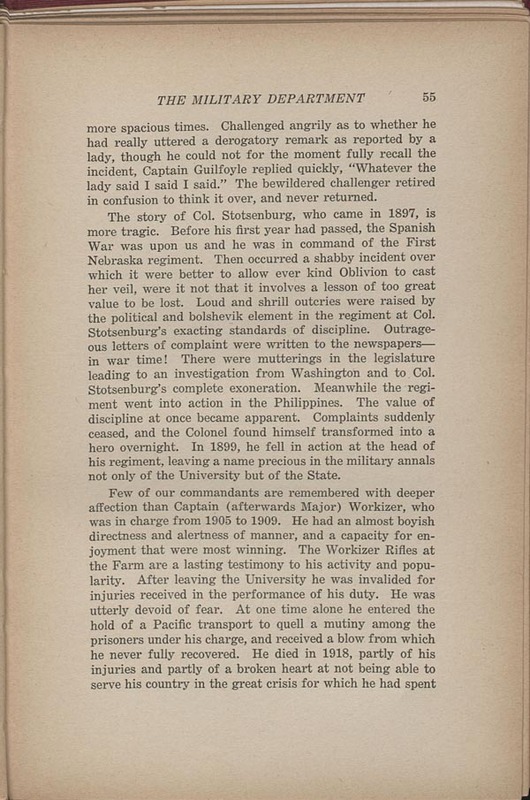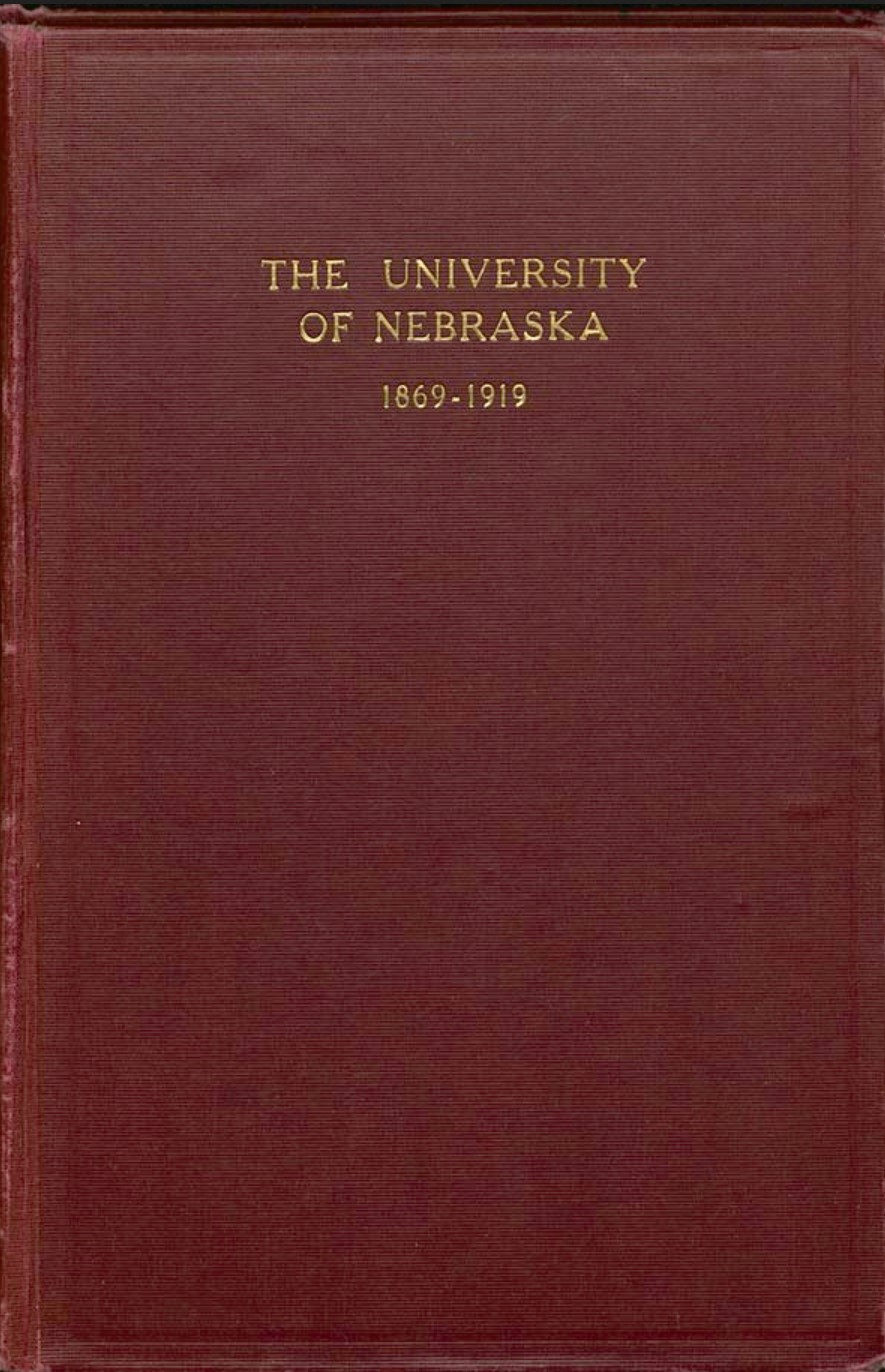059
Item
-
Title
-
059
-
Description
-
Semi-Centennial Anniversary Book: The University of Nebraska, 1869-1919
-
Transcription
-
more spacious times. Challenged angrily as to whether he had really uttered a derogatory remark as reported by a lady, though he could not for the moment fully recall the incident, Captain Guilfoyle replied quickly, "Whatever the lady said I said I said." The bewildered challenger retired in confusion to think it over, and never returned.
The story of Col. Storsenburg, who came in 1897, is more tragic. Before his first year had passed, the Spanish War was upon us and he was in command of the First Nebraska regiment. Then occurred a shabby incident over which it were better to allow ever kind Oblivion to cast her veil, were it not that it involves a lesson of too great value to be lost. Loud and shrill outcries were raised by the political and bolshevik element in the regiment at Col. Stotsenburg's exacting standards of discipline. Outrageous letters of complaint were written to the newspapers—in war time! There were mutterings in the legislature leading to an investigation from Washington and to Col. Stotsenburg's complete exoneration. Meanwhile the regiment went into action in the Philippines. The value of discipline at once became apparent. Complaints suddenly ceased, and the Colonel found himself transformed into a hero overnight. In 1899, he fell in action at the head of his regiment, leaving a name precious in the military annals not only of the University but of the State.
Few of our commandants are remembered with deeper affection than Captain (afterwards Major) Workizer, who was in charge from 1905 to 1909. He had an almost boyish directness and alertness of manner, and a capacity for enjoyment that were most winning. The Workizer Rifles at the Farm are a lasting testimony to his activity and popularity. After leaving the University he was invalided for injuries received in the performance of his duty. He was utterly devoid of fear. At one time alone he entered the hold of a Pacific transport to quell a mutiny among the prisoners under his charge, and received a blow from which he never fully recovered. He died in 1918, partly of his injuries and partly of a broken heart at not being able to serve his country in the great crisis for which he had spent
-
Rights
-
To inquire about usage, please contact Archives & Special Collections, University of Nebraska-Lincoln Libraries. These images are for educational use only. Not all images are available for publication.



